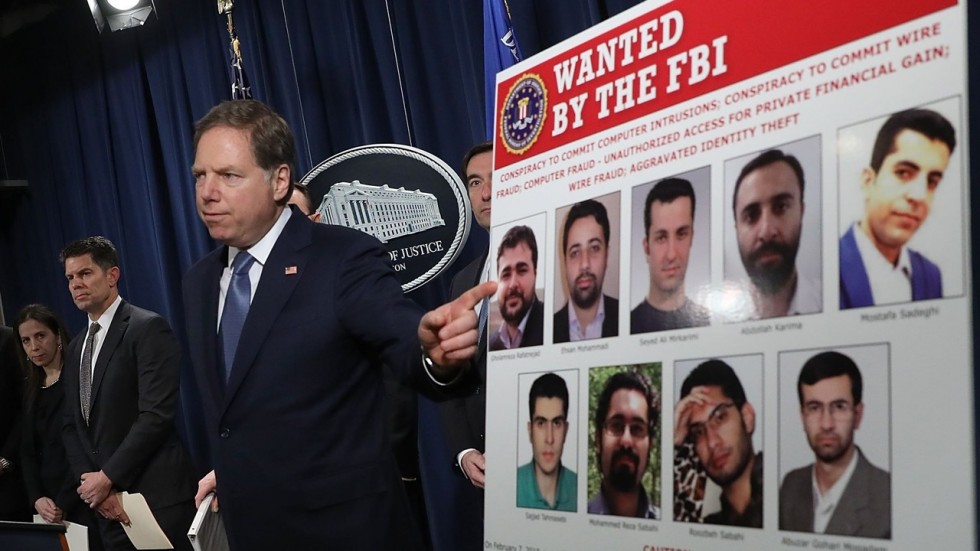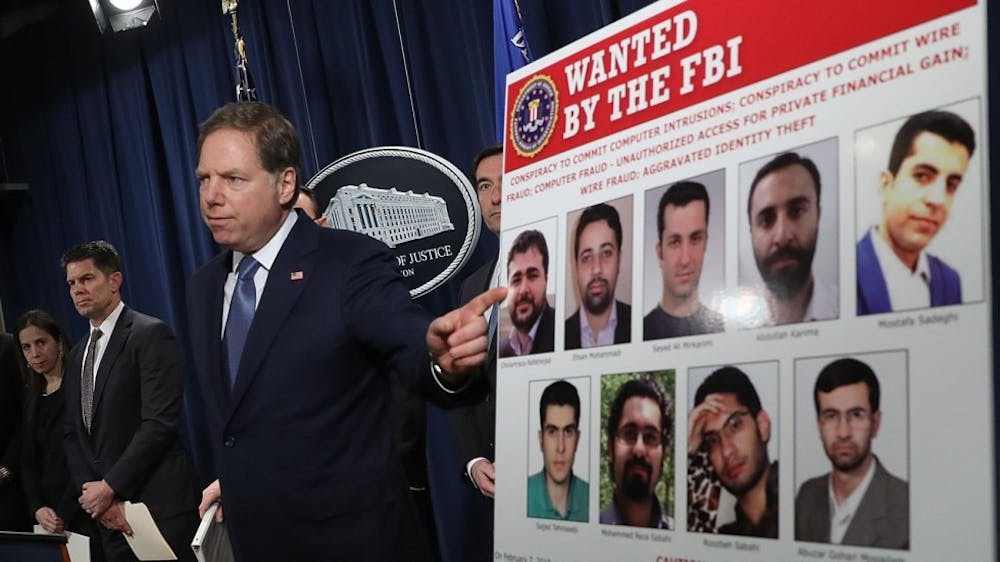By Ariel Steinsaltz
Staff Writer
The U.S. Department of Justice announced the indictment of nine Iranian nationals for a major hacking scheme that involved stealing data from 320 universities worldwide, 144 of which were American, on March 23, according to Forbes.

Overall, the hackers managed to steal 31.5 terabytes of data, according to Forbes. The highly successful phishing campaign took data from the email accounts of more than 8,000 professors from colleges such as Princeton University. Other targets included as well as federal organizations, U.S.-based companies and the U.N.
One of the companies hacked was Los Alamos National Lab, one of the world’s largest science and technology labs originally created to design atomic bombs, according to The Washington Post.
A private American company that had been tracking the campaign released data showing that the hackers primarily targeted institutions with strong technology or medical programs, including students and faculty at the universities. The information was collected from their university library accounts, according to The Washington Post.
The phishing campaign has been going on since at least 2013, according to CNN. The hackers could be sentenced to more than four decades in prison for a list of charges including conspiracy to commit computer intrusions, wire fraud, unauthorized access of a computer and aggravated identity theft.
The DOJ claims that the hackers were tied to multiple clients within the Iranian government, most notably the Islamic Revolutionary Guard Corps. Hackers were employed by the Mabna Institute, according to CNN.
The hacking scheme was one of the largest state-sponsored attacks the DOJ has ever dealt with. It comes during a time when tensions with Iran are high, owing to President Donald Trump’s potential plans to pull out of the U.S.-Iran nuclear deal, according to CNN.
Leaked conversations indicate that the Iranian hackers were frustrated by their lack of substantial progress, according to the The New York Times. They also joked about their low wages and slow internet connection.
“Through their carelessness, we were able to get a real picture of who these individuals are and what their goals are,” said Collin Anderson, an independent cybersecurity researcher, according to The New York Times. “They are chasing demographics that the government has an interest in targeting.”
The revelation over the progress of the hackers comes at a time of unrest in Iran, after the government blocked access to various social media tools to prevent the spread of “violence and fear,” according to The New York Times.







